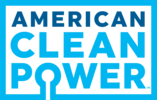News Release from American Clean Power Association (ACP)
Wind Industry Profile of
US: 14-state study - Billions in benefits from adding more electric power transmission
Savings on producing electricity are just the start of the benefits to regions that expand their electrical transmission, according to an impressive new study issued today in Little Rock, Ark., by the Southwest Power Pool, which supplies 14 states across the central U.S.
Fuel cost savings alone totaled $240 million in the first year, from power line upgrades between 2012 and 2014, the study found. The authors acknowledge they didn’t even count all the benefits, but that just the low-cost wind energy enabled is already saving consumers an additional $99 million per year, or a quarter million dollars a day.
As Nick Brown, president and CEO of SPP, said today, “Transmission does more than just keep the lights on. It’s an enabling resource that paves the way for numerous benefits to our stakeholders and their customers.”
According to the study, 348 upgrades on SPP’s 56,000 miles of power lines far more than paid for themselves. SPP finds a benefit-to-cost ratio of 3.5:1, or $16.6 billion in benefits they were able to examine from $3.4 billion invested.
The Brattle Group, which reviewed the findings, added that “the estimated present value of the production cost savings in the SPP study likely is understated,” because among other reasons, many of SPP’s major transmission projects were not yet in service during most of the period analyzed.
The upgrades enabled more wind energy to be built in areas with the strongest resources, with savings so far of approximately $99 million per year (Table 5, p. 20), or $271,000 a day. That was the third largest source of benefits found in the study, behind production cost savings and reliability benefits.
More transmission enables more effective integration of renewable energy, the study found, smoothing out variability over a larger region. And it reduces the need for more expensive solutions like energy storage and fast-start generation.
SPP’s findings are consistent with other power grid operators’ studies findings that transmission more than pays for itself. In the Upper Midwest, MISO’s analysis of its multi-value project portfolio found a benefit-cost ratio of 2.6:1 to as much as 3.9:1 from new transmission.
Even more transmission is still called for in the Southwest Power Pool, as elsewhere around the country, if states are to meet their carbon pollution reduction targets most affordably. According to an EIA analysis of the draft Clean Power Plan, under the lowest-cost compliance option, wind would supply 57 percent of the new electricity needed.
So if states and consumers are to keep saving money, that will take more upgrades and new power lines that don’t yet exist.
- Source:
- AWEA
- Email:
- windmail@awea.org
- Link:
- www.awea.org/...
